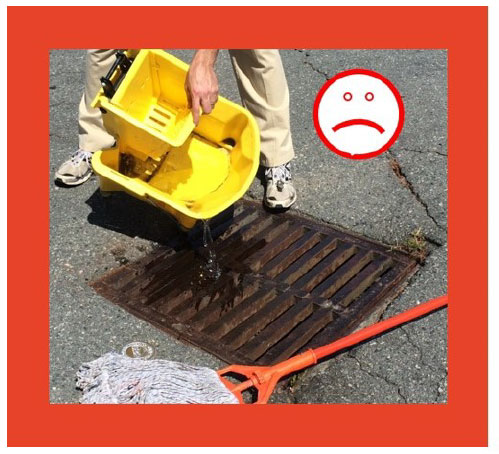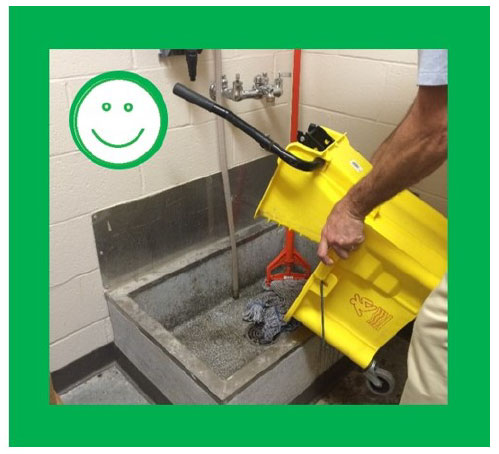Pollution Prevention for Food Service
Food service operations should be managed to prevent food and liquid waste from entering storm drains. Storm drains connect directly to local creeks, and any spills of food waste or cleaning materials that enter storm drains will pollute the creeks surrounding UNC-Chapel Hill’s campus.
Food Service Operations
- Food Truck Pollution Prevention Guidelines
- Food Vendor Pollution Prevention Guidelines
- Kenan Stadium Concessions Pollution Prevention Guidelines
- Housekeeping Pollution Prevention Guidelines (Mop Water Disposal)
Used Cooking Oil Storage
Used cooking oil must be stored properly to prevent leaks and spills.
EHS strongly recommends using a service that comes into the restaurant and collects used oil rather than using an outdoor container accessed by employees. This service reduces safety hazards for employees and the risk of pollution caused by spills and contaminated storage areas.
If used oil will be stored at the restaurant location, the following requirements must be followed:
- Used cooking oil containers must be stored underneath a shelter or inside closed secondary containment.
- Keep the container closed at all times except while adding and removing oil.
- Containers are defined as “closed” only when they would not leak or spill if tipped over.
- Do not store used cooking oil containers near storm drains.
- Clean spills immediately. Do not allow cooking oil to enter storm drains.
- EHS provides spill kits in blue drums. Make sure this kit is always close to the used cooking oil container and is stocked with the supplies that are on the list located inside each drum.
- If you have a spill, call EHS at 919-962-5507 or call 911 for assistance.
- Inspect the used cooking oil container weekly and correct problems immediately.
Food Service Dumpsters
Liquids leaking from dumpsters (“dumpster juice”) can wash into storm drains when it rains, causing pollution in the local creeks.
- Keep liquids out of dumpsters.
- Top-opening lids must stay closed except when adding trash.
- Side-opening doors can stay open at all times.
Mop Water
Mop water must only be emptied into housekeeping sinks and must never be poured into any drains on the ground.


Washing of Food Service Floor Mats and Waste Containers
Wash floor mats, waste containers, etc. only in housekeeping sinks or designated wash rooms, never outside. When drying these items, only let the water drain into sinks or indoor floor drains. The only loading docks at which these items can be washed are the Lenoir/Student Union loading docks and the Chase Dining Hall loading dock. At all other facilities, the mats and waste containers may only be washed and drained/dried indoors.
Free Training for Restaurant Staff
EHS provides free-of-charge pollution prevention training for campus restaurants. Training is given for any size group, is located at your food service facility, and is appropriate for all staff and management levels. To schedule training, call EHS at 919-962-5507 and ask to speak to the Stormwater Specialist.
